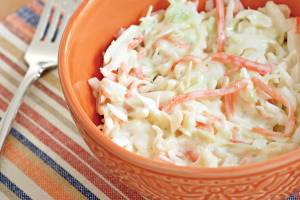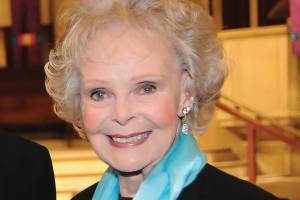Blast to the Past!
By Randal C. Hill
From 1974 to 1982, Sweden’s ABBA quartet sold a reported 400 million discs while leaving behind a legacy of now-classic creations. And, along the way, ABBA heard no complaints from the owner of a Swedish fish-canning factory. (More about that later.)
ABBA consisted of two married couples from Stockholm: Bjorn Ulvaeus and Agnetha Faltskog, and Benny Anderson and Anni-Frid Lyngstad. Bjorn and Benny had worked together for years in various groups. In 1971, they released a Top 5 Swedish single—“Hello, Old Man”—which, for the first time, featured their wives accompanying them on the recording. Later Bjorn and Benny 45s didn’t do as well, though, and for the next three years the musicians struggled to keep their names alive on the music scene.
Enter Stig Anderson. An ex-teacher who had written hundreds of songs during the 1960s, he had started Polar Records in the early 1970s. Now he needed to find the right artists to send him on a rocket ride to success and, hopefully, wealth. Anderson met his goal with Bjorn and Benny and their fetching wives. He named the quartet ABBA, using the first initial of each of their names.
Now he needed to get them noticed in a big way.
The Eurovision Song Contest had been held annually since 1956 and was often a highlight of the European TV year. Up to 600 million viewers watched each event, with hopeful participants representing their home countries, performing original three-minute songs. The prize handed to the winner seemed absurd: a 1950s-style glass radio microphone. The wide-ranging—and all-important—exposure, though, was priceless.
ABBA entered the contest in 1974 with the Bjorn and Benny-created “Waterloo,” which lyrically compared a young woman’s surrender to her suitor’s advances to Napoleon’s being vanquished at the Battle of Waterloo in 1815:
Waterloo, I was defeated, you won the war
Waterloo, promise to love you forevermore
(History buffs will delight in pointing out that, while Napoleon was beaten at that battle, he didn’t actually surrender until six weeks later.)
That Eurovision night, Bjorn and Benny were visible and providing onstage instrumentation (Bjorn played guitar, Benny keyboards), but the spotlight mainly fell on their gorgeous wives, resplendent in flashy outfits and frolicking in well-choreographed steps. The ladies blew more than a few million minds that night, as ABBA swept away the evening’s competition.
Starting with the international smash hit of “Waterloo,” ABBA eventually released hit after hit worldwide. In America, fourteen of their Atlantic Records reached Billboard’s Top 40 singles charts, with one—“Dancing Queen”—streaking to Number One in 1977. In 2010, the group was voted into the Rock and Roll Hall of Fame.
A little-known fact is that before Stig Anderson could register the name ABBA, he had to obtain permission to use that name, as a Swedish fish-canning company named Abba Seafood had been around since 1838. Agnetha Faltskog later recalled that the company owner had initially grumbled, “Okay, as long as you don’t make us feel ashamed for what you’re doing.” MSN








